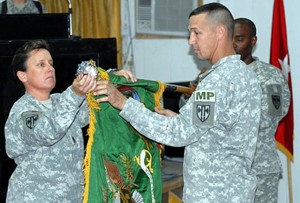Mark Udall to Obama: You Can Force John Brennan to “Excise the Demons”
I have to admit, this letter from Mark Udall urging Obama to support the release of the Senate Intelligence Committee’s torture report is close to shrill when describing CIA Director John Brennan’s disinterest in declassifying the report.
Meanwhile, there have been media reports that the CIA is planning an “aggressive response” and is objecting to a “majority” of the Committee’s Study. While I find these reports hard to believe, I am concerned that despite my request — and requests from Chairman Feinstein and other colleagues on the Committee — Director Brennan and his staff have shown little to no interest in engaging collaboratively and constructively with the Committee on a path forward on the Committee’s Study. In fact, despite repeated requests by Members, the CIA has declined to meet or discuss the Study with Committee staff. [my emphasis]
But a more important detail elaborates on something hinted at in this report of Joe Biden’s support for releasing the report.
Speaking about the classified Senate Intelligence report on the use of torture or enhanced interrogation by the United States, Biden suggested that his personal view is that he agrees with McCain that more information should be made public, while he noted it has been the subject of intense debate at both ends of Pennsylvania Avenue.
“Now this voluminous study has been done,” Biden said. “And the internal debate that goes on in the Congress and in the White House is, do we go back and do we expose it? Do we lay out who was responsible and how we got to where we are?”
“It offends the fundamentals of what kind of country we are, and the practical side of it is, don’t think it didn’t damage the United States’ image in the world in ways that we’ll be paying for for years to come,” McCain said, noting his support for disclosing more details of what happened.
“It is not resolved yet, John, but I’m where you are. I think the only way you excise the demons is you acknowledge, you acknowledge exactly what happened straightforward,” Biden said. [my emphasis]
That is, the CIA is not the only part of the Executive Branch debating the release of the report. So is the White House. And while Udall is much less shrill with this suggestion than his description of Brennan’s disinterest in discussing the report, he does imply that Obama ultimately gets to make this decision.
It is my understanding that the comments from your administration will reflect not only the views of the CIA, but also other Executive Branch agencies impacted by the CIA’s detention and interrogation program. I believe the views of other government agencies and the White House are absolutely essential in order to engage in a constructive, lessons-learned dialogue.
In 2009, you made it clear that the CIA’s detention and interrogation program and its “enhanced interrogation techniques” had no place in an Obama administration. I deeply appreciate your stand on these important issues. I also applaud the recent comments of Vice President Biden about the need to “excise the demons” and acknowledge what was done under the CIA’s detention and interrogation program. Only by acknowledging and correcting the false public record can the CIA — with your support — credibly institute the necessary reforms that are essential for the CIA to be its best. I strongly believe — and trust that you agree — that publicly acknowledging the truth of this program, regardless of how uncomfortable, is necessary, consistent with our country’s history and ideals, and in the long-term interests of the CIA and the American people. [my emphasis]
Obama’s Administration has tried to hide the fact in the courts, but the torture program was the President’s program, not CIA’s. According to then-CIA Director Leon Panetta, the NSC — not the CIA Director — was the entity that made the torture program a Special Access Program.
Officials at the National Security Council, (NSC) determined that in light of the extraordinary circumstances affecting the vital interests of the United States and the sensitivity of the activities contemplated in the CIA terrorist detention and interrogation program, it was essential to limit access to the information in the program. NSC officials established a special access program governing access to information relating to the CIA terrorist detention and interrogation program. Read more →


